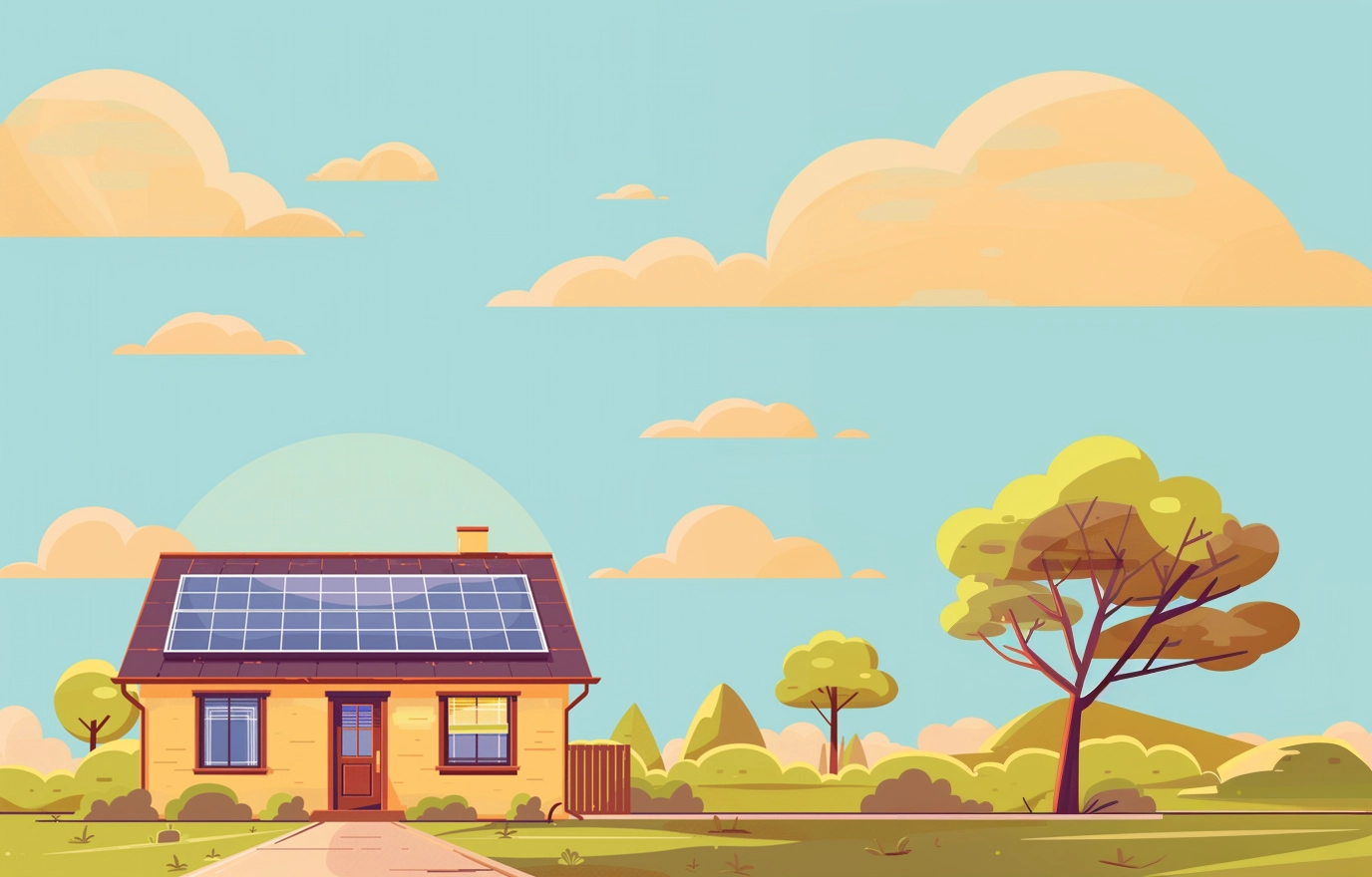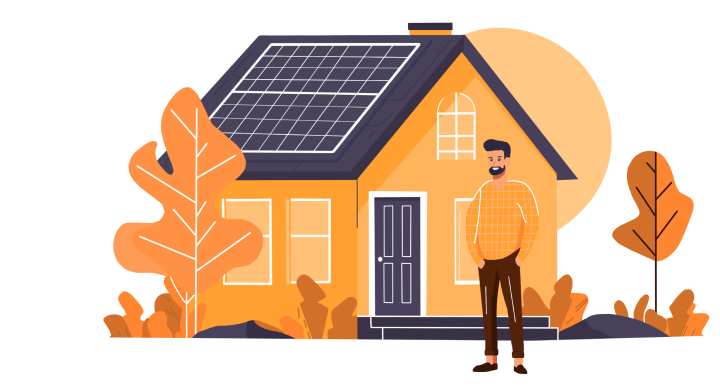Residential solar panel installations have grown over the past decade, and more people are looking up "installation panel solar" in a bid to shift towards renewable energy solutions.
However, many homeowners find themselves overwhelmed by the solar installation process, which is indicative of the widespread interest in installing solar panels. Whether you're curious about how to install solar panels or how to locate reliable providers, read on to discover key mistakes to avoid and expert tips to ensure a smooth transition to solar energy for your home.
Mistake #1: You're considering installing panels by yourself.
If you're searching for "installation panel solar," you're probably wondering about the installation of residential solar panels.
Mistakes can be costly. If you don't have the proper tools needed for the job, then buying all these essentials could add to the total cost of solar installation. Rather than dealing with this, rely on professional solar installers to bring the necessary resources like power drills, safety gear and specialty electrical tools.
It can be difficult to secure permits on your own.
Going the DIY route also means moving through government processes and sorting out requirements on your own.
The good news is that hiring a professional solar service gives those looking up "installation panel solar" the guidance they need to manage paperwork and other necessities. In a lot of instances, your solar installation services provider can even take care of any permits on your behalf.
Mistake #2: You're settling for the first deal without comparing it with other options.
Want to lower your overall cost of solar panel installation? Accepting the first quote you get from the search results of "installation panel solar" might not be the best decision.
With Solar Energy Host, you don't need to spend hours compiling prices from countless websites or visiting multiple physical stores. Our service swiftly provides you with a list of trusted local solar power systems providers, making the comparison process straightforward and hassle-free.
After you receive these reasonably priced quotes, you have the opportunity to review and select based on your budget and preferences.
Mistake #3: You're not thinking long-term.
Choose between an on-grid or off-grid setup.
An on-grid setup allows you to stay connected to the local energy grid, which significantly lowers your overall energy costs. By being part of the grid, you can enjoy financial benefits, as the energy generated by your solar panels can offset your electricity bills. On-grid solar installations act as safety nets, so you have power even during disruptions affecting traditional energy providers.
On the other hand, an off-grid setup requires a higher initial investment but offers long-term savings by eliminating monthly energy costs. This type of system relies on battery storage to manage excess energy, providing complete independence from the grid. You can divert the saved funds toward other essential expenses.
Each "installation panel solar" setup has its own unique advantages, but your decision should align with both your immediate budget and long-term goals.
Select a specific type of panel suitable for your home.
Monocrystalline panels, known for their high efficiency, are ideal for homes with limited roof space. These panels produce more energy per square foot, allowing those who live in smaller homes to install solar despite limited space. They might come with a higher price tag, but their efficiency often results in better long-term savings.
Conversely, polycrystalline panels are less efficient but more affordable, making them suitable for homes with more roof space.
Mistake #4: You're not considering possible future incentives.
If you decide to install a solar panel, net metering programs can significantly offset your energy costs.
On particularly sunny days, your solar system might generate more electricity than your household needs. Rather than letting this excess energy go to waste, net metering allows you to channel it back to your utility company. In return, they credit you for the surplus energy supplied to the local grid.
Homeowners with newly installed solar systems may qualify for a valuable deduction from their tax payments. The amount you can claim typically depends on factors such as the installation date and the specific details of your solar setup.
Now, those curious about "installation panel solar" can make an informed decision about solar panels for home use.
Frequently Asked Questions (FAQ)
What are the benefits of installing solar panels over other renewable energy sources?
Installing solar panels offers several advantages compared to other renewable energy sources like wind or hydroelectric power.
- Solar panels can be installed on residential rooftops, gardens or backyards.
- Unlike wind turbines, which need specific wind conditions and ample space, solar panels can harness energy just about anywhere there's sunlight.
- With a long lifespan of 25 to 30 years, solar panels offer a dependable, low-maintenance energy solution that minimizes ongoing costs.
- Solar installations are also easily scalable to meet changing energy needs. Homeowners can start with a modest system and expand it as their power needs grow.
Given these advantages, it's clear why solar energy stands out as a practical and efficient option for many households.
Do I need a solar battery, and how does it work?
A solar battery is not strictly necessary for all "installation panel solar" systems, but it can provide significant benefits.
Solar batteries store excess energy generated during sunny periods for use during the night or overcast days. This allows homeowners to tap into their own stored energy supply rather than drawing from the electrical grid.
A solar battery also serves as a reliable backup power source during outages. This is particularly valuable in regions with frequent power disruptions due to storms or heat waves. Essential appliances can continue operating, providing peace of mind and safety for your family during critical times.
Additionally, using stored energy during peak electricity rates can result in cost savings on your electric bill. While not essential, a solar battery can significantly enhance the efficiency and reliability of your solar energy system.
Will I still receive an electric bill after installing solar panels?
If your solar system doesn't produce enough energy to meet your household's consumption, you'll need to purchase additional power from the grid. This scenario is common during periods of high energy use or when your system's energy production is low. Thus, your energy consumption and the efficiency of your solar setup play critical roles in determining your remaining utility costs.
Utility companies often charge fixed fees for service, maintenance and infrastructure, even if your solar system covers much of your electricity use. These fixed fees may be mandatory unless you opt for an off-grid system.
Solar Energy Host: Your Solar Partner
At Solar Energy Host, our reliable platform connects you with top local solar power installers, ensuring you receive competitive quotes for solar panel installation. Enter basic information, compare offers, and choose the best fit for your energy needs. Join countless homeowners who have transitioned to a sustainable future and enjoy significant savings with Solar Energy Host.



















